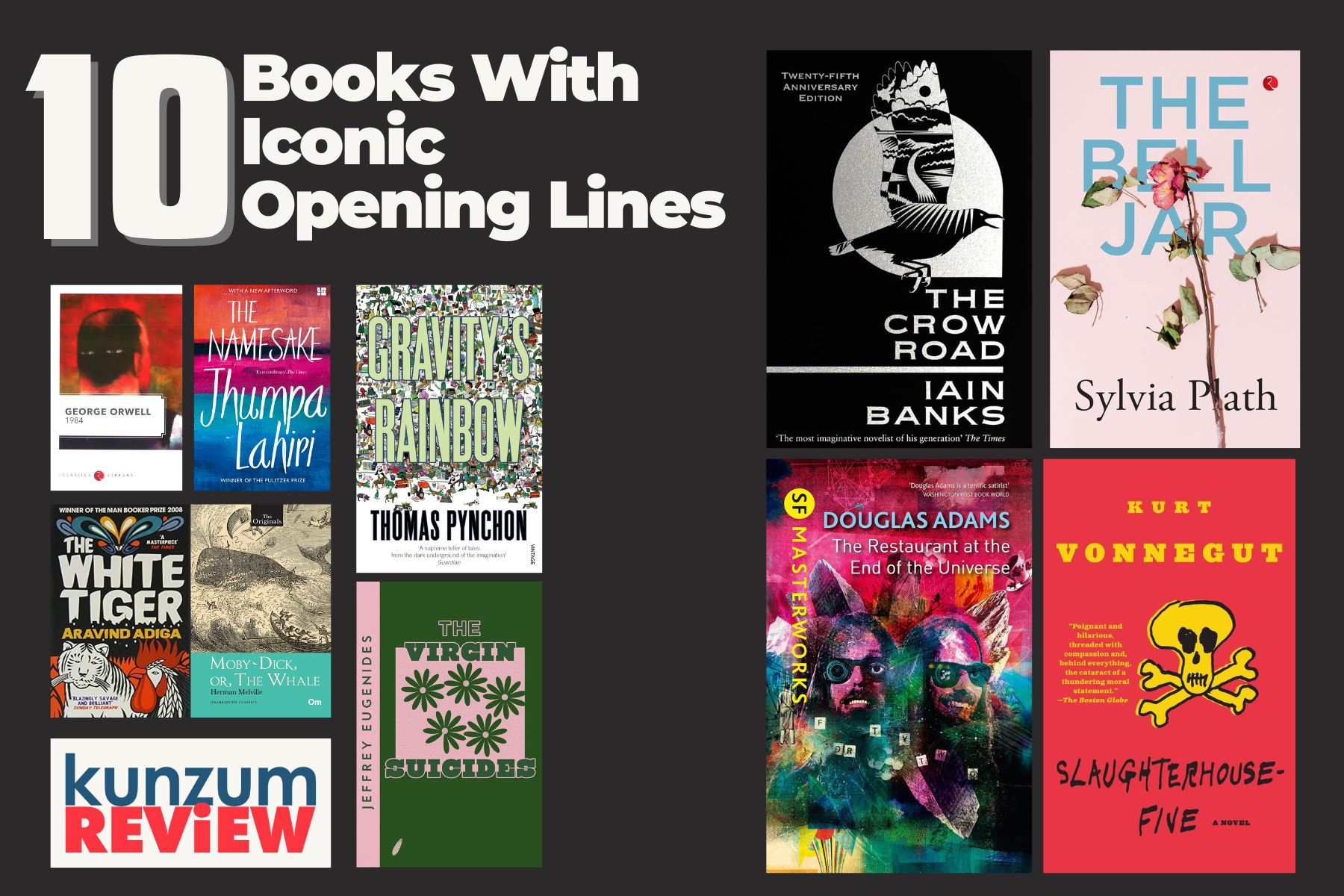
To suitably tease and challenge your readerly brain, we have selected a list of 10 great books that can be recognised by their iconic opening lines. How many of these can you guess? And how many of these are you yet to read?
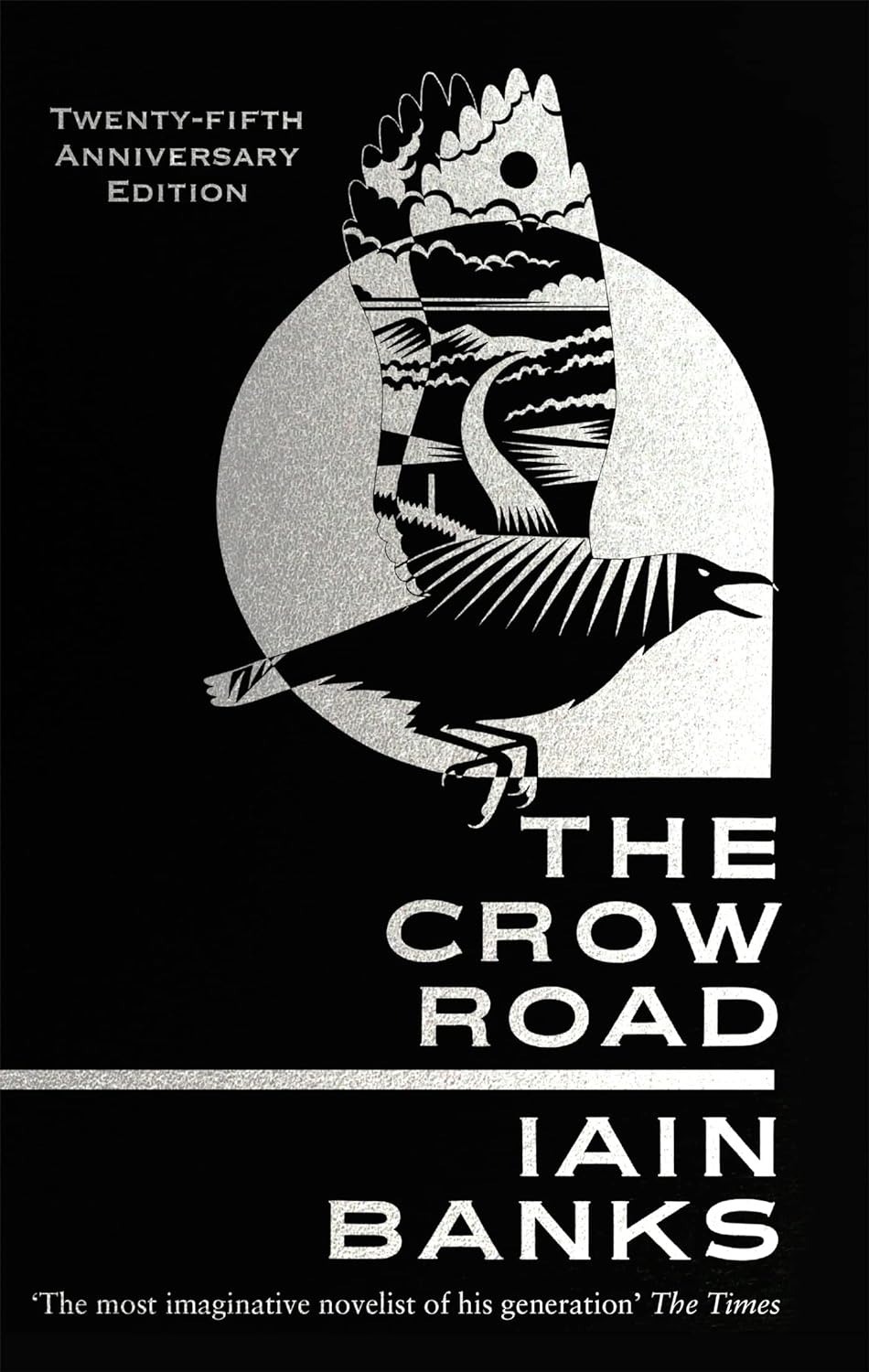
“It was the day my grandmother exploded.”
Crow Road by Iain Banks
Named after a Glaswegian Road, the title serving as an allusion to death, the morbid bildungsroman, as told by Scottish Iain Banks, follows Prentice McHoan and his obsession with sex, death, god, his dad, and illegal substances. A non-linear narrative that spills thriller into domestic fiction, as gripping as its first line, Banks’ novel is composed of wonderful characters and a winning plot.
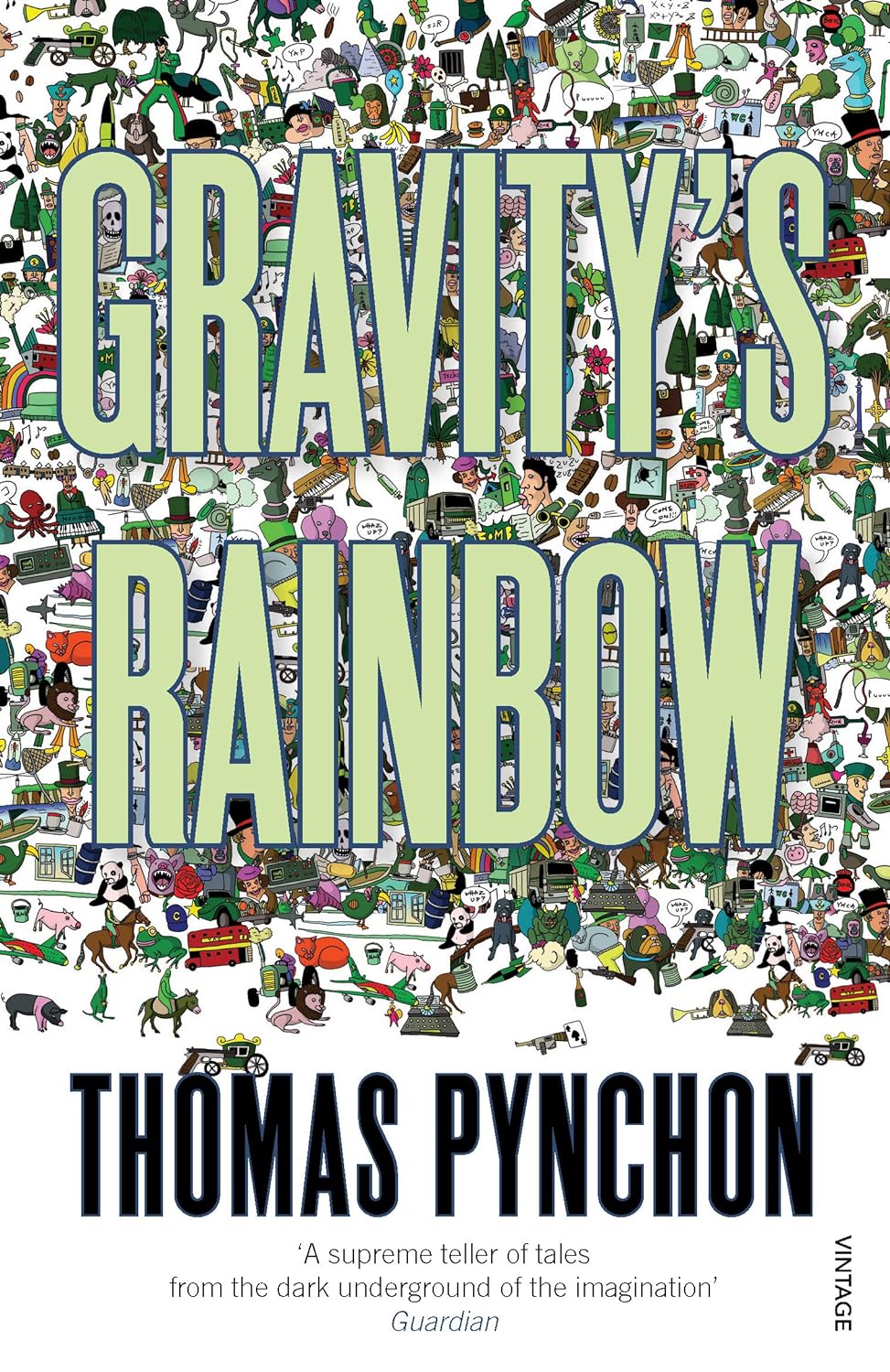
“A screaming comes across the sky.”
Gravity’s Rainbow by Thomas Pynchon
A book that famously offended the Pulitzer Advisory board for being obscene and obscenely incomprehensible, a cult favorite and a hallowed addition to the postmodern canon, Pynchon’s “Gravity’s Rainbow” is a post-WW2 novel told in four parts. A book that explores the socio-political context of the development of the Nazi “vengeance weapon”, the V-2 Rocket, it makes for ambitious and highly stimulating reading.
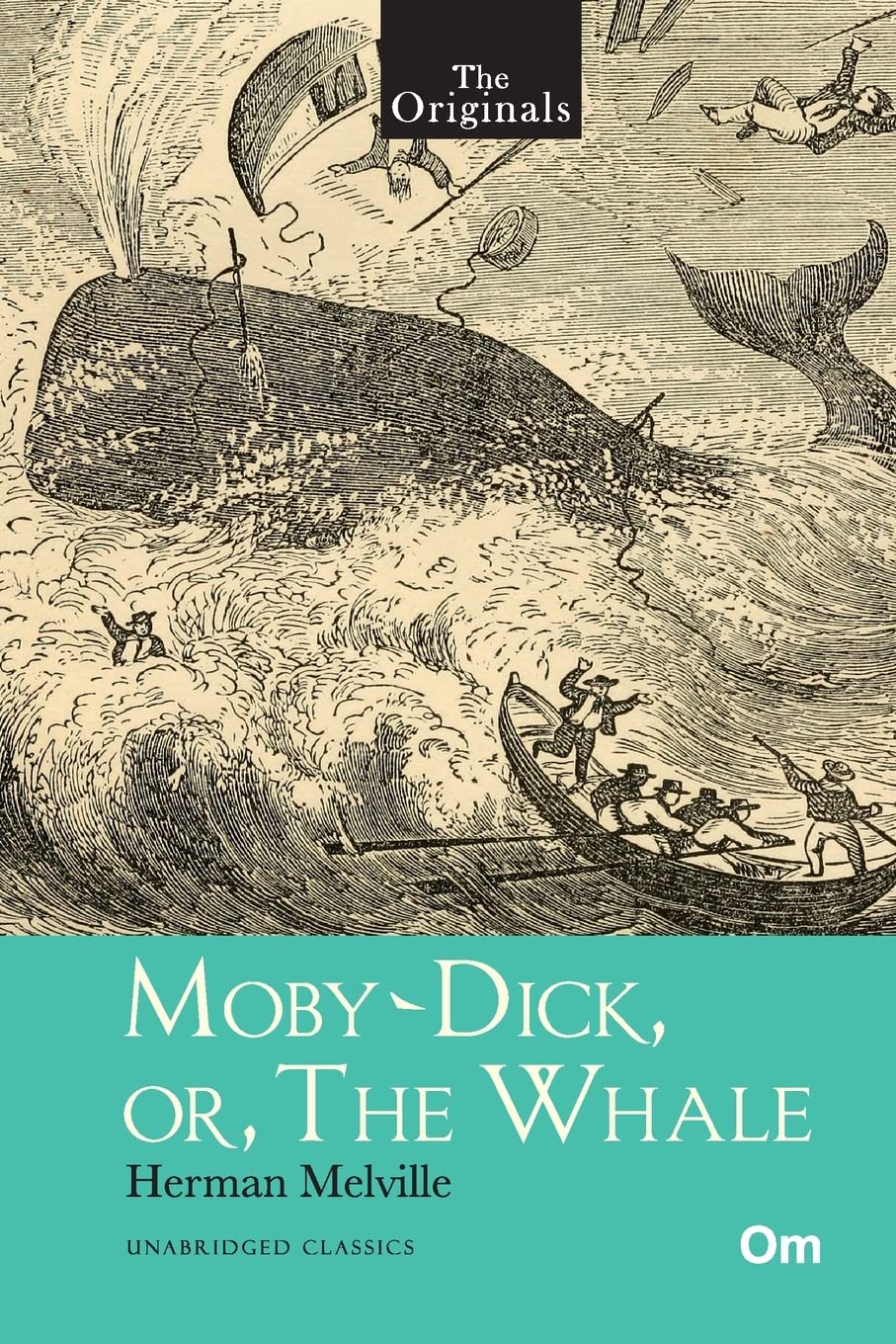
“Call me Ishmael.”
Moby Dick by Herman Melville
Narrated by, you guessed it, Ishmael, a sailor who is inadvertently witness to Captain Ahab’s epic and manic journey to take vengeance from the fabled sperm whale, Moby Dick. Called the “Great American Novel”, finished in 18 months and lasting well beyond a lifetime, Melville’s “Moby Dick” is the quintessential epic novel set at sea.

“It was a queer, sultry summer, the summer they electrocuted the Rosenbergs, and I didn’t know what I was doing in New York.”
The Bell Jar by Sylvia Plath
Capturing the very core of the novel, this iconic opening line perhaps sets the tone for any reader aspiring to delve into the jarring beauty of “The Bell Jar” . Paralleling Plath’s own experiences with clinical depression and suicidal ideation, the novel follows brilliant 19-year old undergraduate Esther Greenwood as she shifts to New York City for her summer job as editor of the Ladies Day Magazine. A deeply affecting coming-of-age narrative, the novel follows Greenwood as she encounters a variety of professional, social and personal tribulations that often speak to the unique experience of entering into adulthood.
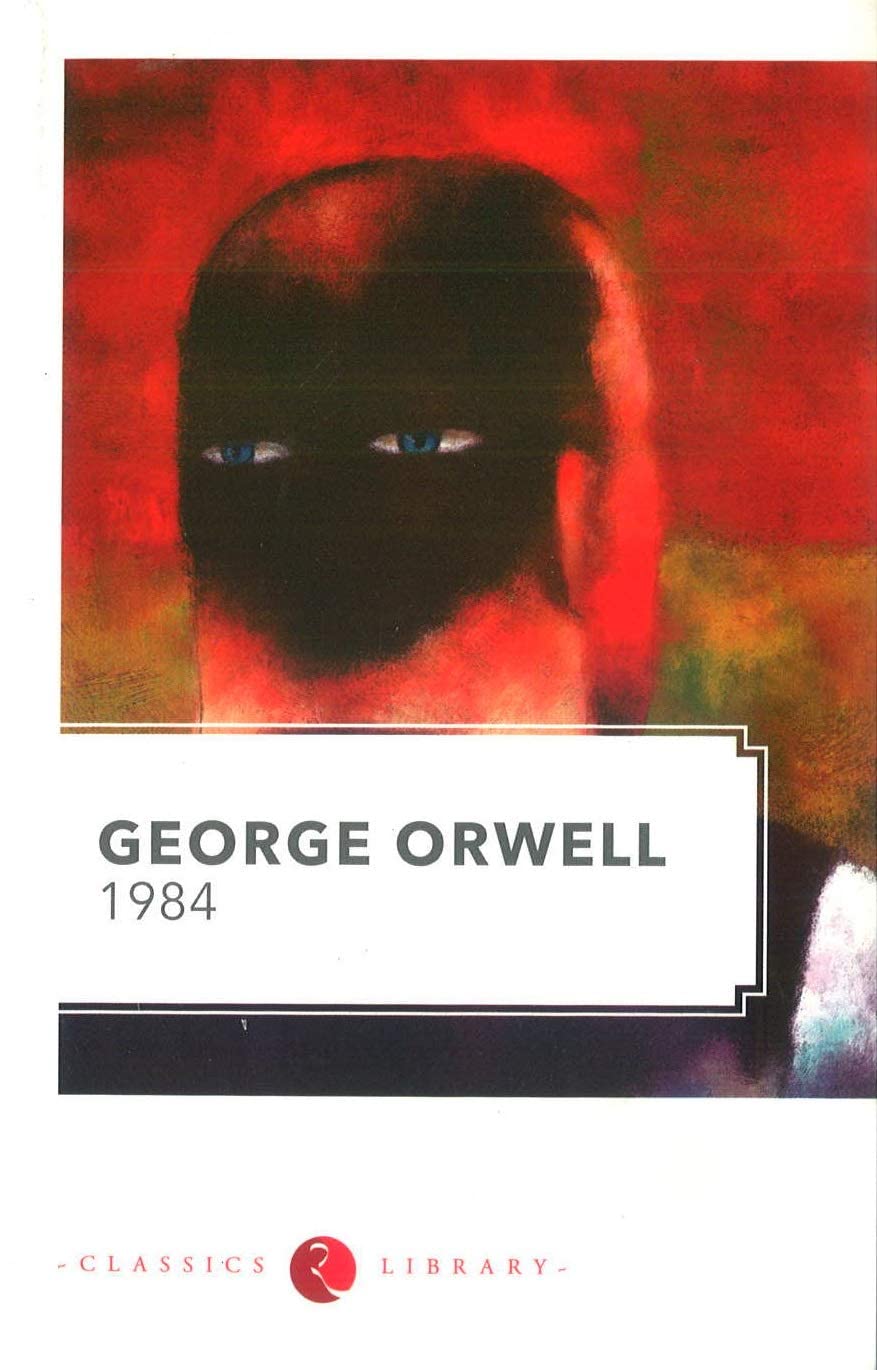
“It was a bright cold day in April, and the clocks were striking thirteen.”
1984 by George Orwell
Giving us words like “doublethink”, “thoughtcrime” and “newspeak”, written in the aftermath of Stalinism and Nazism, “1984” is set in a fictional post-nuclear totalitarian Oceania, and follows small-party man Winston Smith as he is tasked with the enormous task of re-writing history so as to align it with political propaganda. Orwell’s iconic cautionary tale, imagining a utopia replete with mass surveillance, ministries of truth, a thought police, and much more, 1984 is home to a vast variety of classic sci-fi tropes and concepts that have served to be foundational to the development of the genre.
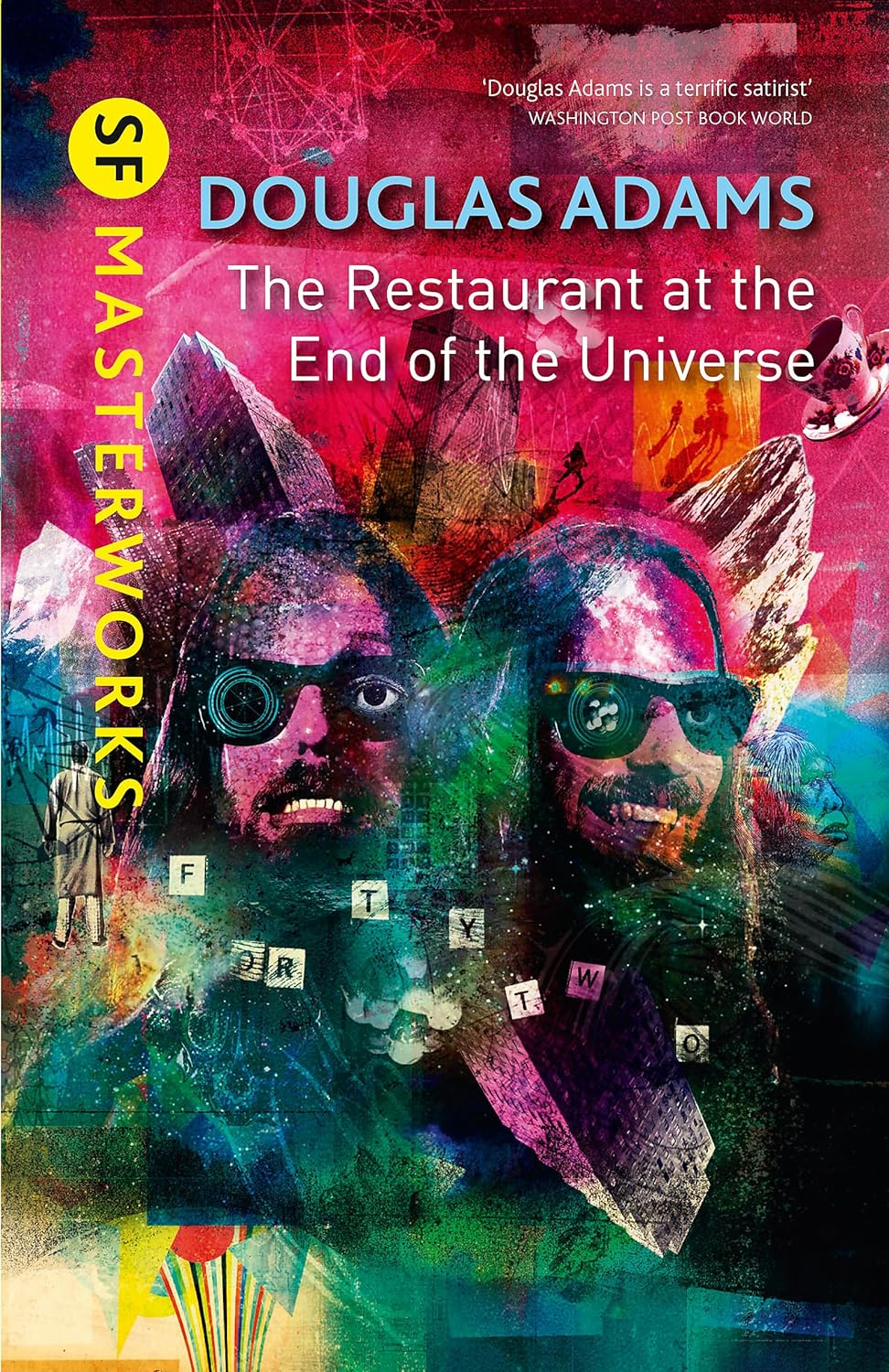
“The story so far: in the beginning, the universe was created. This has made a lot of people very angry and been widely regarded as a bad move.”
The Restaurant at the End of the Universe by Douglas Adams
Second in the iconic “Hitchhiker’s Guide to the Galaxy” series, Adams’ “Restaurant at the End of the Universe” follows the original group, except for Zarniwoop, as they journey to Milliways, a restaurant built on a ruined planet that is, quite literally, at the edge of an ending universe. Continuing the “Hitchhiker’s” tradition of wonderful contradictions and zany catastrophes, the second volume is another smash-hit in a cult classic series.
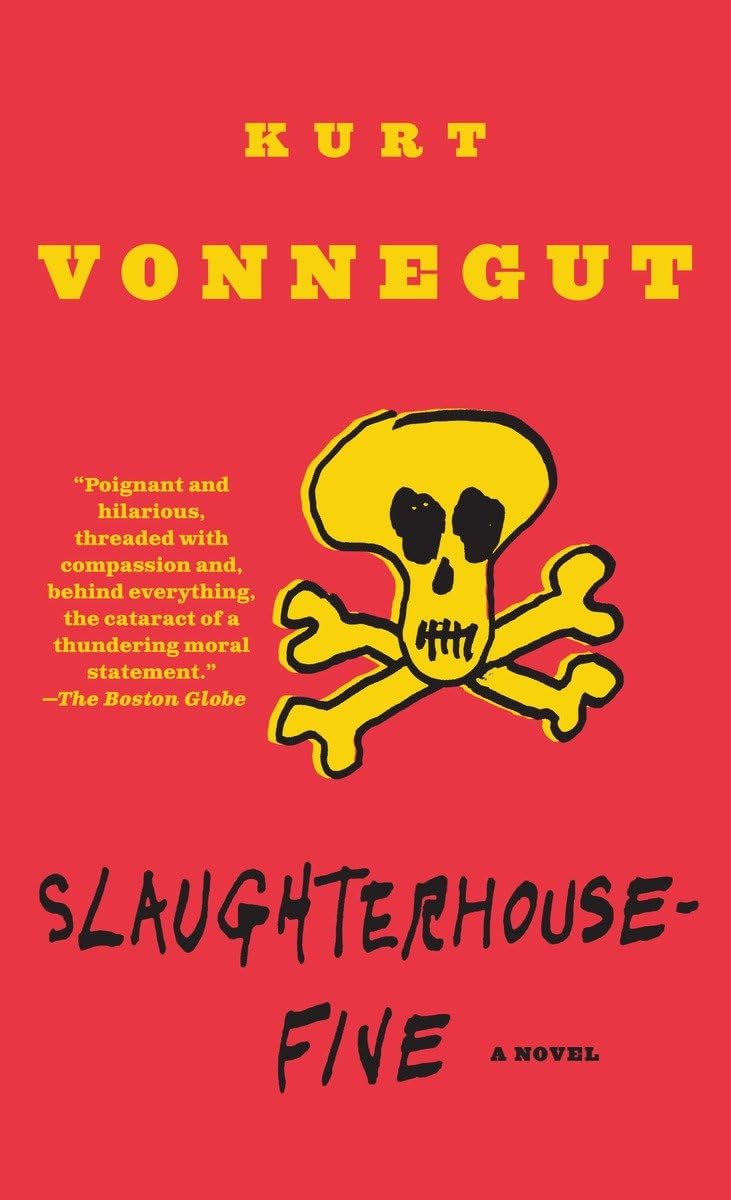
“All this happened, more or less.”
Slaughterhouse-Five by Kurt Vonnegut
Vonnegut’s sci-fi anti-war classic follows admittedly unreliable narrator Billy as he finds himself to be “unstuck in time”. In a series of flashbacks and stream of conscious descriptions that attempt to make sense of his time travel, the novel, often imitating the symptoms of PTSD, launches an unwilling-to-fight Billy into terrifying scapes of Nazi Germany, Cold War Europe, psych wards and alien spaceships. A comic satire that wittily addresses the atrocities of the twentieth century, Vonnegut’s “Slaughterhouse Five” captures the keen experimentalism and wit that is the essence of his charismatic voice.
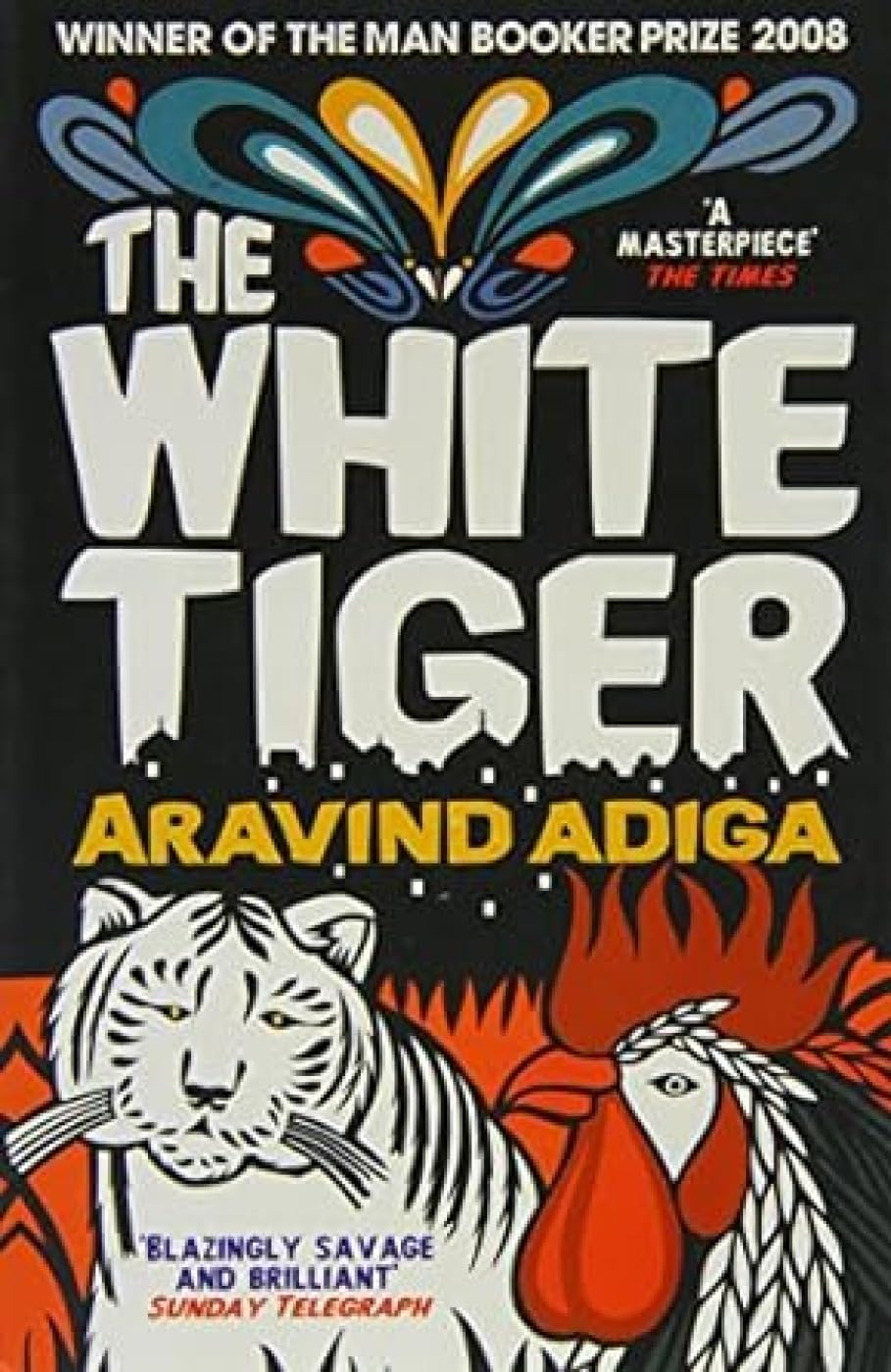
“Neither you nor I speak English, but there are some things that can be said only in English.”
The White Tiger by Aravind Adiga
A narrative in retrospect, the novel follows village youth Balram Halwai as he recounts the sordid tale of his entrepreneurial rise in a dynamic and cruel country. Winner of the 2008 Booker Prize, Adiga’s masterful black comedy brilliantly examines the contemporary role of caste, class, and religion in an increasingly corrupt globalized India.

“On the morning the last Lisbon daughter took her turn at suicide—it was Mary this time, and sleeping pills, like Therese—the two paramedics arrived at the house knowing exactly where the knife drawer was, and the gas oven, and the beam in the basement from which it was possible to tie a rope.”
The Virgin Suicides by Jeffrey Eugenides
Famously adapted for film by Sofia Coppola, Eugenides’ debut novel, set in Grosse Point, Michigan, is written in first-person plural, from the perspective of a group of precocious neighbourhood boys, it recounts the famous successive suicides of the Lisbon sisters. In trying to make sense of the absurd tragedy, the novel offers poignant insight into the reality of young women and the socio-religious pressures that limit and often suffocate them. A haunting tale and a refreshing coming-of-age story, “The Virgin Suicides” is a cult-classic par-excellence.
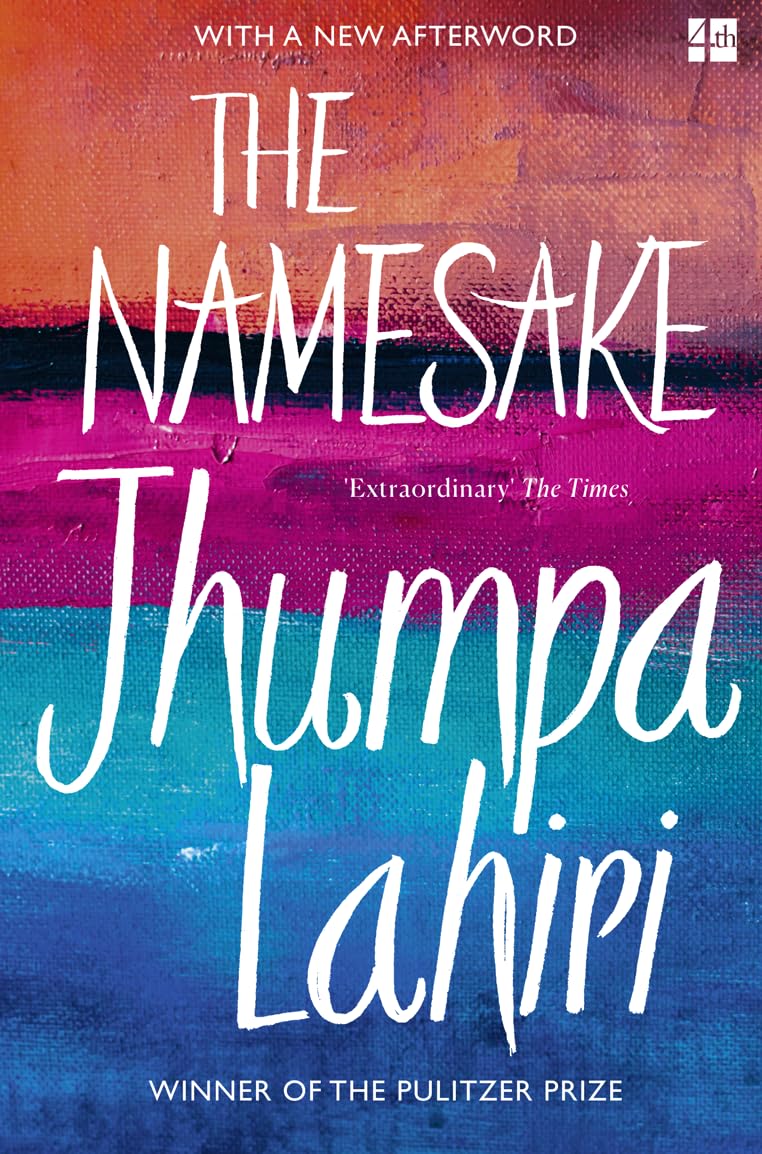
“On a sticky August evening two weeks before her due date, Ashima Ganguli stands in the kitchen of a Central Square apartment, combining Rice Krispies and Planters peanuts and chopped red onion in a bowl.”
The Namesake by Jhumpa Lahiri
Pulitzer Prize-winning author Jhumpa Lahiri’s debut novel, “The Namesake”, portrays young Bengali couple Ashima and Ashok Ganguli as they leave their home in Calcutta to settle in Cambridge, Massachusetts. As they struggle through culture shock, language barriers, social alienation and disorienting displacement, the novel, with tact and tender affection, represents the reality of immigrating far from home and the many hidden costs of the experience.
Pick up a book with an iconic opening line from any Kunzum store or WhatsApp +91.8800200280 to order. Buy the book(s) and the coffee’s on us.
